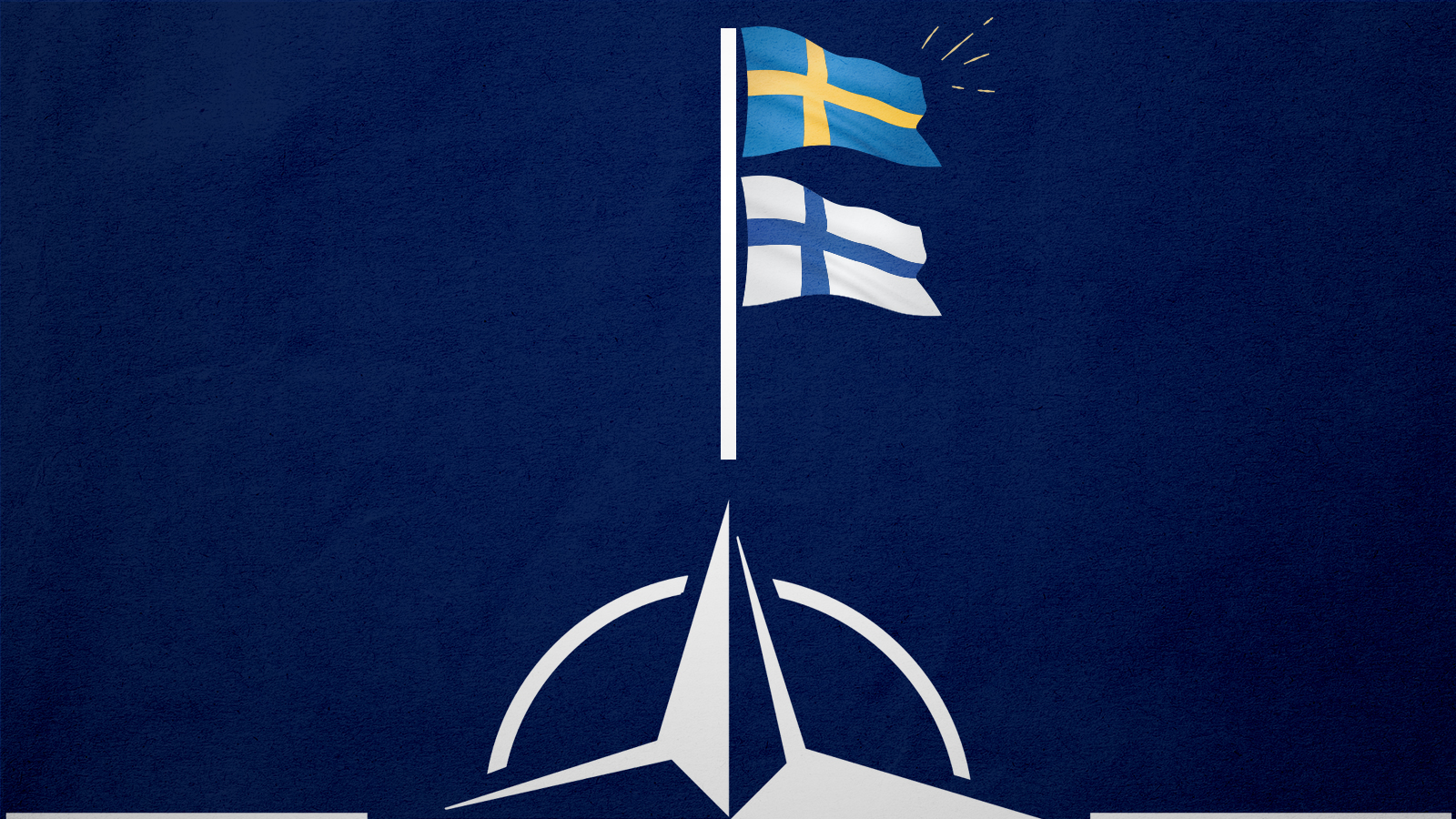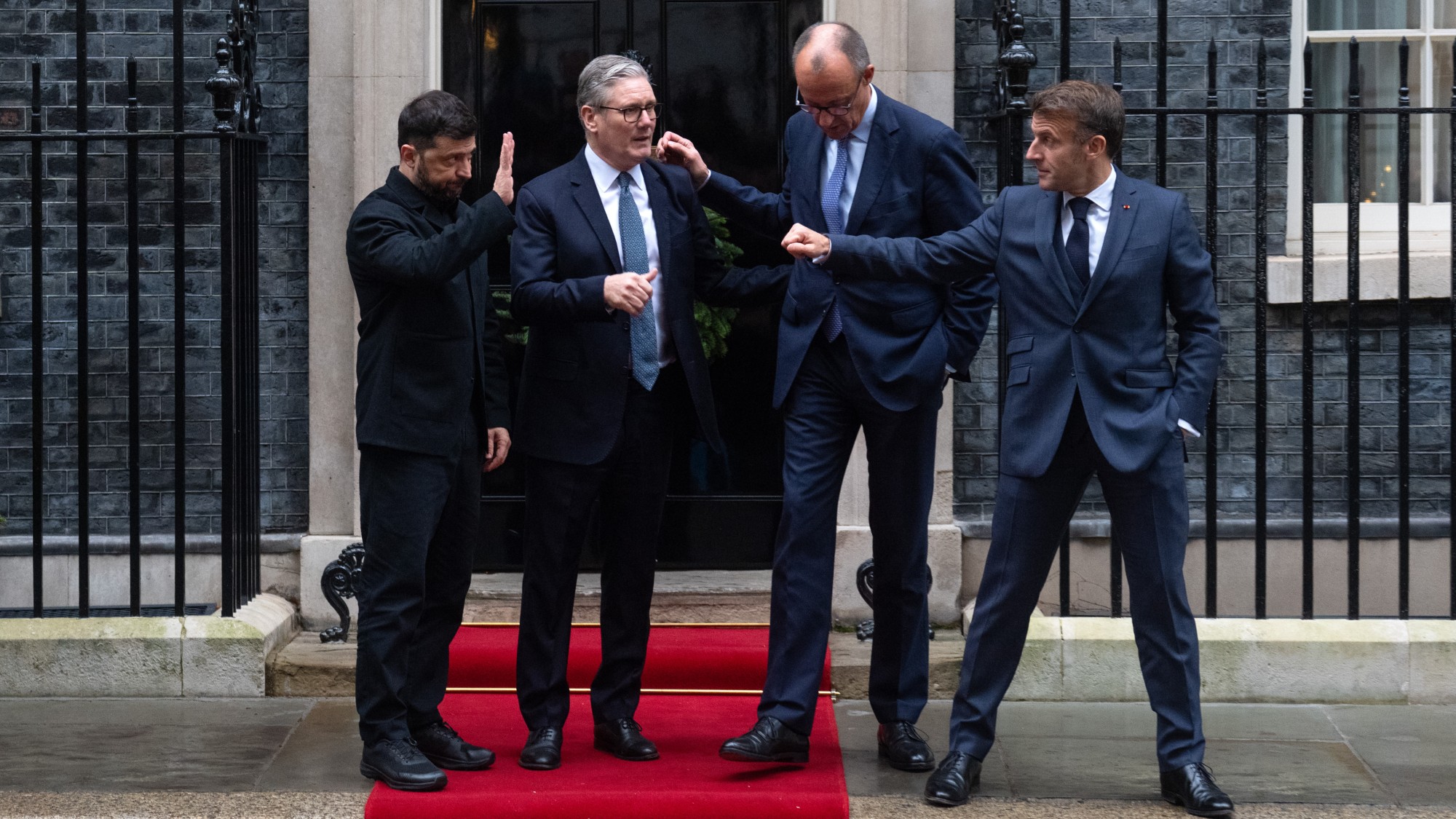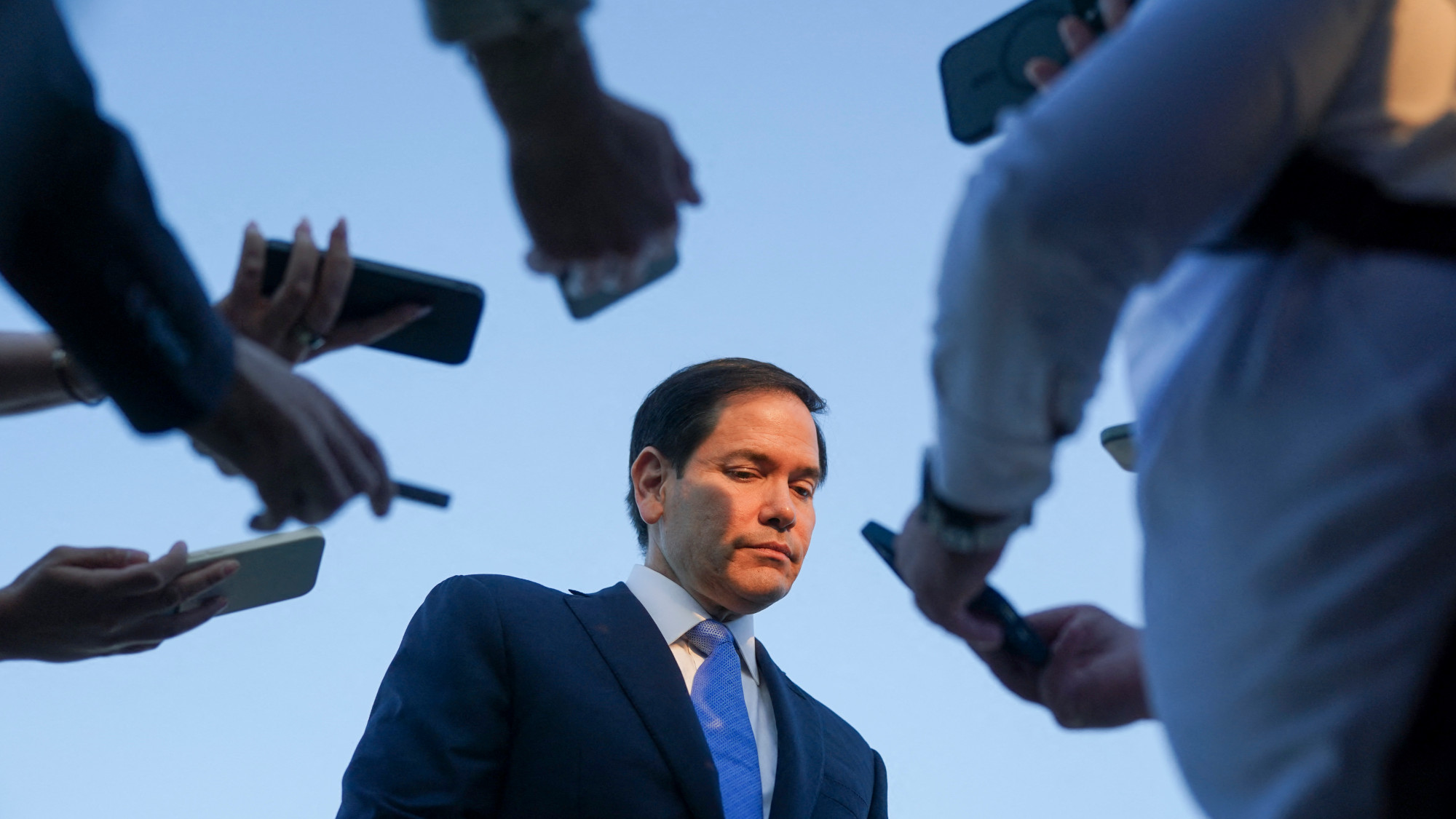What are the benefits and drawbacks of adding Finland and Sweden to NATO?
Both nations are stepping away from their long-held neutrality


A free daily email with the biggest news stories of the day – and the best features from TheWeek.com
You are now subscribed
Your newsletter sign-up was successful
Both Finland and Sweden have now formally applied to join the NATO military alliance, whose leadership has made it clear it would welcome both countries quickly (barring any complications from alliance member Turkey and its president).
But what benefits would an expanded Nordic influence bring NATO, Finland, and Sweden? What are the potential drawbacks?
PRO: It's security assurance
An attack against one member of NATO is considered an attack against the entire alliance, meaning both Finland and Sweden — the former of which shares a border with Russia — would be fiercely protected in the case of a Moscow-led attack, The Associated Press writes. Helsinki and Stockholm already maintain a close partnership with NATO, and public polling in both countries indicates a a new appetite for joining the alliance.
The Week
Escape your echo chamber. Get the facts behind the news, plus analysis from multiple perspectives.

Sign up for The Week's Free Newsletters
From our morning news briefing to a weekly Good News Newsletter, get the best of The Week delivered directly to your inbox.
From our morning news briefing to a weekly Good News Newsletter, get the best of The Week delivered directly to your inbox.
CON: It will anger Russia
A major reason Russian President Vladimir Putin initiated the war in Ukraine was to prevent NATO from expanding, but Finland and Sweden's accession would do exactly that. Not long after Finland's announcement, the Kremlin had already threatened "military-technical" retaliation.
"Finland's accession to NATO will cause serious damage to bilateral Russian-Finnish relations," the Russian foreign ministry wrote in a statement. "Russia will be forced to take retaliatory steps, both of a military-technical and other nature, in order to stop the threats to its national security that arise in this regard."
In the past, despite their close partnership with the alliance, Finland and Sweden have thought of themselves as militarily "nonaligned"; it's how Finland "famously" survived the Cold War, The New York Times writes. But, such a "radical policy shift" now stands to reset "the security environment in Europe," per inews.co.uk.
PRO: Bolster the Nordic Region
Not only would Finland and Sweden secure security assurance from NATO in the event of accession, their membership would also "formalize their joint security and defense work" with neighbors Denmark, Norway, and Iceland "in ways that their Nordic Defense Cooperation pact hasn't," AP writes.
A free daily email with the biggest news stories of the day – and the best features from TheWeek.com
Known as NORDEFCO, the countries' cooperation framework is currently "a maze made up of different structures," researcher Minna Ålander wrote for the Italian Institute for International Political Studies — some countries in the region are part of the European Union, others part of NATO, and so on and so forth. But should all Nordic countries join the same military alliance, it would "facilitate deeper cooperation in security and defense within their most natural reference group."
Accession would also "tighten the strategic Nordic grip on the Baltic Sea — Russia's maritime point of access to the city of St. Petersburg and its Kaliningrad exclave," AP writes.
CON: The 'security dilemma' of a 'more dangerous world'
Beyond the war in Ukraine, Finland and Sweden joining NATO creates more of a "security dilemma" than it does a "security solution," inews posits. For one thing, an angry Putin poses a nuclear threat — not just to Finland and Sweden, but to all of NATO.
And for both Nordic countries, even if and when the "immediate perceived Russian threat" disappears, they must still consider the "possibility of nuclear warfare," which is "intrinsically linked to NATO membership."
PRO: It will boost NATO's capability
Finnish and Swedish membership stands to help NATO, as well.
"As countries with high levels of per capita income, they could make a net contribution to NATO's military capabilities over time," Christopher S. Chivvis writes for The Carnegie Endowment for International Peace. Finland's "large armed forces, enormous reserves, history of defending a land border with Russia, and first-rate military intelligence," as well as Sweden's "skilled navy," among other offerings, are also a positive, adds Foreign Policy.
Plus, accession grants NATO access to both Finnish and Swedish territory in a crisis, which would "ease concerns about reinforcing the Baltic states and reduce the chances of a successful Russian attack," Ian Bond of the Center for European Reform told Carnegie Europe.
CON: Responsibility for the Finnish border falls on NATO
If Finland and Sweden aren't secure enough on their own, bringing them in might create a "major new vulnerability" for NATO, Chivvis posits in his piece for the Carnegie Endowment.
And Finland's 850-mile border with Russia also poses a "potential headache for NATO, which would have to develop and resource a credible plan to defend it," Chivvis says, noting it would be "unrealistic" and "unwise" to expect the U.S. to alone shoulder the burden, considering European allies should be capable of doing so mostly themselves.
Update 5:09 p.m. ET on Wednesday, May 18: This story has been updated throughout to reflect Sweden and Finland's formal applications to NATO.
Brigid Kennedy worked at The Week from 2021 to 2023 as a staff writer, junior editor and then story editor, with an interest in U.S. politics, the economy and the music industry.
-
 Ex-South Korean leader gets life sentence for insurrection
Ex-South Korean leader gets life sentence for insurrectionSpeed Read South Korean President Yoon Suk Yeol was sentenced to life in prison over his declaration of martial law in 2024
-
 At least 8 dead in California’s deadliest avalanche
At least 8 dead in California’s deadliest avalancheSpeed Read The avalanche near Lake Tahoe was the deadliest in modern California history and the worst in the US since 1981
-
 Political cartoons for February 19
Political cartoons for February 19Cartoons Thursday’s political cartoons include a suspicious package, a piece of the cake, and more
-
 ‘The forces he united still shape the Democratic Party’
‘The forces he united still shape the Democratic Party’Instant Opinion Opinion, comment and editorials of the day
-
 The billionaires’ wealth tax: a catastrophe for California?
The billionaires’ wealth tax: a catastrophe for California?Talking Point Peter Thiel and Larry Page preparing to change state residency
-
 Trump considers giving Ukraine a security guarantee
Trump considers giving Ukraine a security guaranteeTalking Points Zelenskyy says it is a requirement for peace. Will Putin go along?
-
 Vance’s ‘next move will reveal whether the conservative movement can move past Trump’
Vance’s ‘next move will reveal whether the conservative movement can move past Trump’Instant Opinion Opinion, comment and editorials of the day
-
 Bari Weiss’ ‘60 Minutes’ scandal is about more than one report
Bari Weiss’ ‘60 Minutes’ scandal is about more than one reportIN THE SPOTLIGHT By blocking an approved segment on a controversial prison holding US deportees in El Salvador, the editor-in-chief of CBS News has become the main story
-
 Will there be peace before Christmas in Ukraine?
Will there be peace before Christmas in Ukraine?Today's Big Question Discussions over the weekend could see a unified set of proposals from EU, UK and US to present to Moscow
-
 Ukraine and Rubio rewrite Russia’s peace plan
Ukraine and Rubio rewrite Russia’s peace planFeature The only explanation for this confusing series of events is that ‘rival factions’ within the White House fought over the peace plan ‘and made a mess of it’
-
 Has Zohran Mamdani shown the Democrats how to win again?
Has Zohran Mamdani shown the Democrats how to win again?Today’s Big Question New York City mayoral election touted as victory for left-wing populists but moderate centrist wins elsewhere present more complex path for Democratic Party
